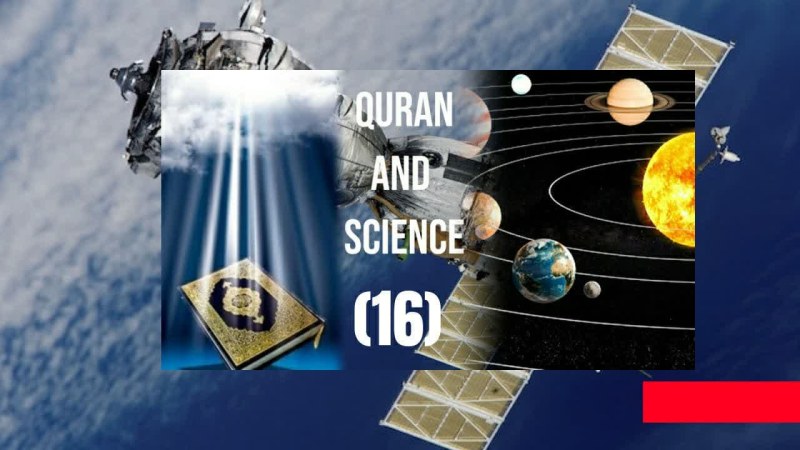- In the ancient Greek astronomy, there is a statement about the seven heavenly elements. Did the Qur'an adapt its description of the number, shape and arrangement of the heavens from the ancient Greek astronomy?

Quran and Science
Quran and Science
Click to Previous Part
However, the Holy Qur'an clearly disagrees with this theory in verses 38 and 40 of Surah Yasin that say:
“The sun runs on to its place of rest: That is the ordaining of the All-mighty, the All-knowing”.[1]
“It is not for the sun to overtake the moon, nor doth the night outstrip the day. They float each in an orbit”.[2]
Some orientalists have taken the movement of the sun in these verses to mean the movement of the sun around the earth. Which was a scientific description of the movement of the planets at the time of the revelation of Quran. They considered this issue to be contrary to the findings of today's astronomy, and with this meaning, they wanted to prove the conflict between the Qur'an and science and its impermanence![3]
This is while these verses are talking about the types of rotation of the sun (longitudinal and rotational) in its fixed orbit, not its rotation around the earth. Contrary to the opinion of some biased and opponents of Islam and the Qur'an, this is an honor for the Qur'an, which mentioned the various types of sun's rotation years before the discoveries of the modern science of astronomy.. In these verses, The Quran rejects the mentioned theory in the above verses for two reasons:
First:
The sun is continuously moving towards its location (or the sun is moving in its location), not that the sun is moving around the earth. It is not itself, but it is moving in search of its crystal constellations. [4]
Click to Next Part
[1] Quran [36–38]: وَالشَّمْسُ تَجْرِي لِمُسْتَقَرٍّ لَهَا
[2] Quran [36–38]: لَا الشَّمْسُ يَنْبَغِي لَهَا أَنْ تُدْرِكَ الْقَمَرَ وَلَا اللَّيْلُ سَابِقُ النَّهَارِ ۚ وَكُلٌّ فِي فَلَكٍ يَسْبَحُونَ
[3] See: Leiden Encyclopedia of the Qur'an, entry "Planets and Stars"; (Kunitsch, Planets and stars, V. 4, PP. 106-109).
[4] Translated: https://makarem.ir/maaref/l/0406298



